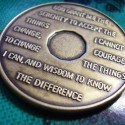Prescription Drug Abuse Threatens Availability of Pain Medication
Take a look in your medicine cabinet — do you spot prescription pain medication? If so, are you contributing to the nation’s dramatic increase in irresponsible prescription drug use? According to the 2008 National Drug Control Strategies Report, 71 percent of prescription pain medication abusers obtained the drugs from family and friends. Among 12- to 13-year-olds, prescription drug abuse actually exceeds marijuana use.
Irresponsible use of prescription medications hurts more than those who misuse the drugs. It hurts the nation’s 75 million chronic pain patients who are at risk of having much-needed medicines restricted or pulled off the market. This will worsen an already difficult situation for pain patients, according to Dr. Albert Ray, chairman of The National Pain Foundation.
Prescription holders, themselves, are vulnerable to misuse, as evidenced by the recent death of actor Heath Ledger. His death was attributed to a widely held but erroneous belief that prescribed medicines are safe, even when used for unintended purposes or outside a prescription’s limits or instructions.
“Chronic pain remains under-treated in this country,” says Ray. “Every morning millions of people wake up in pain, unable to work or just live their lives. The social and economic costs for society and for people living in pain are enormous.”
But lawmakers’ commitment to helping pain sufferers is hampered by what seems to be a trade-off between allowing continued access to pain relief and public safety from drug abuse. With greater general awareness of the importance of safe and appropriate use of prescription drugs, this need not be the case.
The National Pain Foundation is ramping up efforts to raise public awareness to curtail prescription drug abuse and thus ensure the continuing availability of pain medication. The message: Prescription drug abuse is preventable. Prescription drug holders and the medical community have a responsibility to help curb irresponsible drug use. Steps consumers can take include:
— Never take a prescription pain medication unless it is prescribed to you. — Lock up prescription pain medications to keep them out of other people’s hands. — Do not share prescription pain medications with others. — Do not take higher or more frequent doses than prescribed. — Do not take pain medication with alcohol, which can cause adverse side effects. — Do not combine sedatives or anti-anxiety drugs with pain medication. This can increase toxicity. — Do not use narcotic medications as sleeping pills; this can suppress breathing during sleep.
Doctors and other members of the medical community can be especially effective in preventing prescription drug abuse. About 180 million Americans age 18 or older consult their healthcare provider at least once a year. These visits are valuable opportunities to educate patients and screen for drug and alcohol abuse.
“It’s up to each of us to make sure that irresponsible use of prescribed pain medications does not make it harder for legitimate pain patients to have access to drugs that can greatly improve their quality of life,” says Ray.
__________
source: Denver Post


